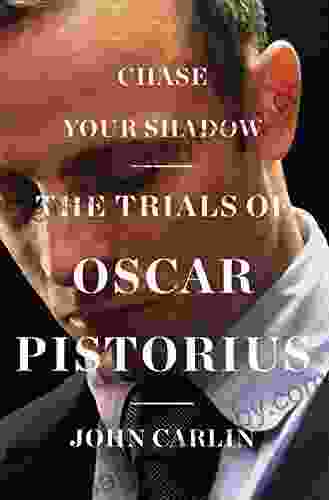Oscar Pistorius, the Olympian and Paralympic champion known as the "Blade Runner," was once hailed as an inspiration to millions worldwide. However, his legacy has been forever tainted by the tragic murder of his girlfriend, Reeva Steenkamp, in 2013. This article delves into the life and trials of Oscar Pistorius, providing a comprehensive examination of the events leading up to the shooting, the trial proceedings, and the aftermath of the case.
The Rise of a Star
Oscar Pistorius was born in South Africa in 1986 with a congenital birth defect that resulted in the amputation of both of his legs below the knee. Despite this physical challenge, Pistorius excelled in sports from a young age, showing immense determination and athleticism. In 2004, he made history by becoming the first amputee to compete in the Olympic Games, running in the 400 meters and 4x400 meters relay.
Pistorius's performances on the track were nothing short of extraordinary. He won numerous Paralympic medals, including six golds, and became a symbol of hope and inspiration for people with disabilities around the world. His nickname, the "Blade Runner," perfectly captured his extraordinary speed and agility on his prosthetic running blades.
A Tragic Night
On February 14, 2013, Valentine's Day, tragedy struck when Oscar Pistorius shot and killed his girlfriend, Reeva Steenkamp, in his home in Pretoria, South Africa. The exact sequence of events leading up to the shooting remains unclear, but it is believed that Pistorius mistook Steenkamp for an intruder.
Immediately following the shooting, Pistorius called the police and claimed self-defense. However, the prosecution argued that he had intentionally killed Steenkamp after a heated argument. The trial that followed was highly publicized and gripped the attention of the world.
The Trials
The first trial against Oscar Pistorius began in March 2014. The prosecution presented a strong case, arguing that Pistorius had fired four shots through a locked bathroom door, killing Steenkamp. The defense countered by claiming that Pistorius had acted in self-defense, fearing for his life after hearing noises in the bathroom.
The trial was filled with dramatic moments, including testimony from Pistorius himself, who broke down on the stand while recounting the events of that fateful night. The jury ultimately found Pistorius not guilty of murder, but guilty of culpable homicide, a lesser charge.
In December 2015, the Supreme Court of Appeal overturned the culpable homicide verdict and convicted Pistorius of murder. He was sentenced to six years in prison, which was later increased to 13 years and five months.
Aftermath
The Oscar Pistorius trial and its aftermath sparked intense debate and discussion about domestic violence, gun control, and the role of disability in the justice system. The case also exposed the complexities of human nature and the potential for even the most revered individuals to commit heinous acts.
Pistorius was released on parole in 2019 after serving part of his sentence. He has since remained a controversial figure, with some believing he deserves a second chance and others condemning him for his actions.
The life and trials of Oscar Pistorius serve as a cautionary tale about the fragility of life and the importance of valuing human relationships. His legacy as an Olympic and Paralympic champion has been overshadowed by the tragedy that occurred that fateful night. The case of Oscar Pistorius continues to raise important questions about justice, forgiveness, and the nature of redemption.

























































































